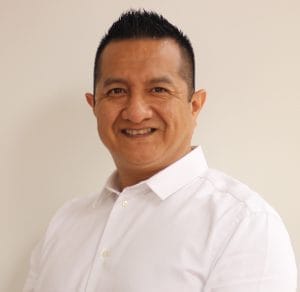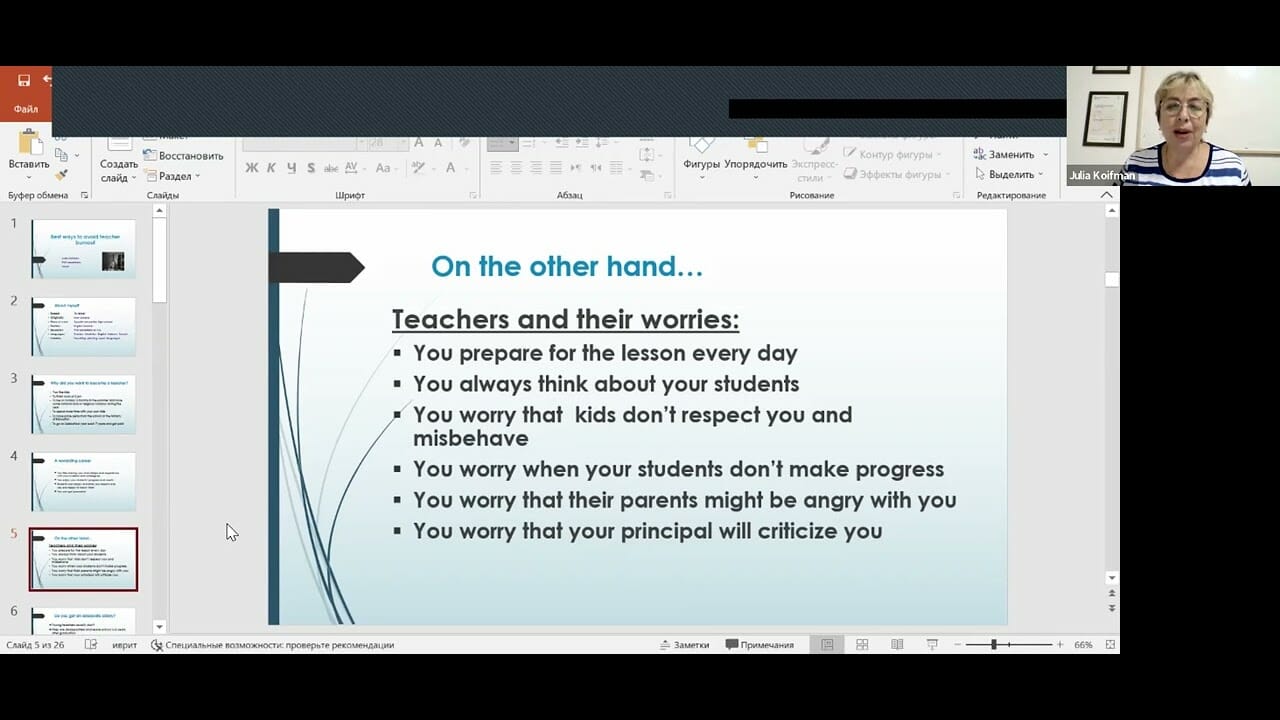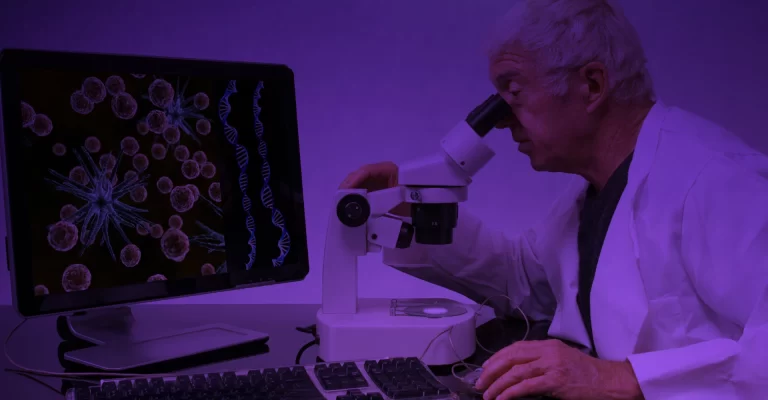Bachelors in History
School of Social & Human Studies
Academic Freedom to Discover Your Purpose
Open Curriculum Design at Atlantic International University
Welcome to the Bachelors in History program at the Atlantic International University (AIU), where pursuing knowledge meets the richness of the past. Our Historical Studies program offers an immersive exploration into the depths of human experience, spanning continents and epochs, encapsulating the essence of our collective heritage. As a student in our program, you will delve into the intricacies of world history, navigating through the annals of time to uncover the narratives that have shaped civilizations.
From delving into historiography courses that dissect the methodologies of interpretation to mastering archival research methods that unlock the secrets of bygone eras, our curriculum is designed to equip you with the analytical tools necessary to navigate the complexities of the past. At AIU, we uphold the principles of academic freedom, fostering an environment where intellectual curiosity thrives, and diverse perspectives are celebrated. With an andragogy-driven approach to education, we empower students to take charge of their learning journey, nurturing critical thinking skills and a passion for discovery that extends far beyond the confines of the classroom. Embark on a transformative academic odyssey with us and uncover the myriad layers of human history waiting to be explored.
Contact Us Today!
We understand how busy adults do not have time to go back to school. Now, it’s possible to earn your degree in the comfort of your own home and still have time for yourself and your family. The Admissions office is here to help you, for additional information or to see if you qualify for admissions please contact us. If you are ready to apply please submit your Online Application and paste your resume and any additional comments/questions in the area provided.
Pioneer Plaza
900 Fort Street Mall 905
Honolulu, HI 96813
800-993-0066 (Toll Free in US)
808-924-9567 (Internationally)
808-947-2488 (Fax)
Core Courses & Topics in History
Important: Below is an example of the topics or areas you may develop and work on during your studies. By no means is it a complete or required list, as AIU programs do not follow a standardized curriculum. It is meant solely as a reference point and example. Want to learn more about the curriculum design at AIU? Check here: Course and Curriculum
In the Bachelor’s in History program, students engage with a diverse array of core courses and topics that illuminate the complexities of the past while honing essential skills for historical inquiry. Cultural history studies delve into the intricacies of societal norms, values, and cultural expressions throughout different historical periods, offering insights into the fabric of human civilization. Research and writing in history equip students with the methodologies and techniques necessary to critically analyze primary and secondary sources and effectively communicate their findings through scholarly writing. Comparative history studies encourage students to explore parallels and divergences across cultures, nations, and periods, fostering a nuanced understanding of historical developments. Through the integrated culture and history of specific regions or eras, students delve deeply into the unique socio-political, economic, and cultural dynamics that have shaped particular geographical areas or time periods, enriching their contextual understanding. Those opting for a public history specialization can explore avenues such as museum studies, archival management, and historical preservation, preparing them for careers in heritage institutions or public-facing historical roles. These core courses and topics provide a robust foundation for students to navigate the complexities of the past and engage with historical inquiry in a meaningful and impactful manner.
- Introduction to World History
- Western Civilization
- Eastern Civilization
- History of the United States
- Ancient Civilizations
- Medieval History
- Early Modern History
- Modern History
- Global History
- History of Science and Technology
- History of Art and Architecture
- American History
- Social History
- Political History
- Gender and History
- Ethnic and Cultural History
Orientation Courses
Our institution’s orientation courses for a Bachelor’s in History serve as the cornerstone for students embarking on their academic journey in historical studies. Through historiography courses, students delve into the methodologies and theories that underpin historical inquiry, gaining a deeper appreciation for how narratives of the past are constructed and interpreted. Historical analysis sessions allow students to critically evaluate primary and secondary sources critically, honing their knowledge of historical significance and relevance.
Embracing a comparative history approach, students explore diverse cultures, societies, and civilizations, fostering a holistic understanding of global interconnectedness. As they embark on their bachelor’s degree journey, students cultivate essential critical thinking skills, vital for navigating the complexities of the past and engaging with historical discourse. Whether delving into the annals of world history or specializing in specific regions or eras, our orientation courses lay the groundwork for a rigorous and rewarding history significant experience, equipping students with the intellectual tools necessary to excel in their academic pursuits and beyond.
- Communication & Investigation (Comprehensive Resume)
- Seminar Administrative Development (Book Summary)
- Organization Theory (Portfolio)
- Seminar Cultural Development (Practical Experience)
- Experiential Learning (Autobiography)
- Seminar International Development (Publications)
Research Projects
Research projects are a vital component of the academic journey for history majors pursuing their Bachelor’s degree. These projects offer history students the opportunity to delve deeply into topics of personal interest, honing their research and analytical skills under the guidance of experienced faculty members. Whether investigating primary sources in archival repositories, conducting oral history interviews, or analyzing historical data sets, students gain invaluable hands-on experience that prepares them for the rigors of graduate studies or entry into the workforce as history graduates. Research projects in history programs contribute to scholarly knowledge and foster intellectual curiosity and a deeper understanding of historical methodologies and interpretations. For those considering further academic pursuits, such as a master’s degree in history, engaging in research projects during their undergraduate years provides a solid foundation for advanced study and specialization.
- MBM300 Thesis Proposal
- MBM302 Bachelor Thesis (5,000 words)
Publication – Publications serve as a noteworthy avenue for bachelor’s degree in history graduates, particularly those aspiring to become high school history teachers. By disseminating their research findings, insights, and analyses, history graduates contribute to the academic discourse and enhance their credibility and expertise as educators. Publications provide a platform for high school teachers to share innovative teaching methods, lesson plans, and curriculum enhancements, enriching the pedagogical landscape in secondary education.
With a solid foundation in history degrees and honed research skills, graduates can produce scholarly articles, lesson guides, textbooks, or digital resources tailored to the needs of high school classrooms. These publications showcase the breadth and depth of historical knowledge and demonstrate the ability to translate complex historical concepts into engaging and accessible content for students. Whether in print or digital format, publications by history graduates play a pivotal role in advancing historical education and fostering critical thinking among the next generation of learners.
Thesis Defense for Bachelors in History
The thesis defense represents the culmination of a bachelor’s degree in history. It offers students the opportunity to showcase their scholarly research and analytical prowess. For instance, a student specializing in American history might present a thesis examining the impact of World War I on the country’s social, economic, and political landscape.
Drawing upon primary sources, statistical data, and historiographical debates, the student might analyze how the war reshaped American society and contributed to the nation’s emergence as a global power. Alternatively, a student-focused on military history could explore the strategies, tactics, and consequences of specific battles or campaigns during World War II, shedding light on pivotal moments in the conflict and their lasting legacies.
Throughout the defense, students demonstrate their mastery of historical methodology, critical thinking skills, and ability to engage with complex historical narratives. By engaging in rigorous scholarly inquiry and defending their research findings before a panel of faculty members and peers, students affirm their readiness to contribute meaningfully to the field of history and society at large.
Begin for Bachelor’s in History Journey at AIU
Apply Now
Outstanding Student Experience at AIU for Bachelors in History Students
At AIU, students pursuing a Bachelor’s in History experience a dynamic and enriching academic journey tailored to their individual needs and aspirations. Our innovative and AI-driven approach to education with MYAIU, AIULINK, ChatGPT, Dall-E, and MidJourney, including our online history degree program, provides flexibility without compromising academic rigor. Students engage with diverse topics, from the modern world to pivotal historical events such as the Civil War, in courses emphasizing both breadth and depth of knowledge.
They collaborate with peers and faculty through interactive online platforms, honing their communication skills through discussions, presentations, and group projects. Our curriculum emphasizes hands-on historical research, empowering students to explore primary sources and develop critical insights into past events and civilizations.
From examining local history’s intricacies to delving into global history’s complexities, students gain a comprehensive understanding of the human experience across time and space through our Online Library. At AIU, we cultivate a supportive learning environment where students thrive academically and personally, preparing them for success in their future careers and lifelong pursuits in history.
Community & Social
At AIU, our online history program students are part of a vibrant and connected community supported by advanced technologies and collaborative tools. From delving into African American history to exploring major historical events, our platform fosters academic discussions and camaraderie among students with shared interests.
With access to a vast array of resources, such as the Merlin Media Center and an extensive online library, students engage in rigorous historical research and intellectual exchange. Our monthly symposiums provide a forum for discussing pressing topics, ensuring that students are not just learners but active contributors to the improvement of society. For transfer students, our support system ensures a seamless transition, welcoming them into a community where history prepares graduates for success and inspires lifelong curiosity and social engagement.
Academic Resources
For students pursuing a Bachelor’s in History, AIU offers a rich array of academic resources that extend far beyond traditional classroom settings. With a focus on real-world knowledge and practical learning, our Virtual Campus integrates over 25 unique tools designed to inspire and motivate students to reach their full potential. Through our immersive Virtual Reality 3D experience, history students can delve into pivotal moments such as World War conflicts or significant historical events, gaining a deeper understanding of their significance.
As they progress in their studies, students have access to resources that enrich their academic journey and prepare them for future endeavors, whether entering the workforce or pursuing graduate school. From exploring environmental history to understanding the implications of historical trends on contemporary issues, our curriculum equips students with the skills and knowledge needed to thrive in various career paths, including roles as secondary school teachers.
With insights from labor statistics and a wealth of online resources, AIU empowers students to navigate the complexities of history with confidence and purpose, ensuring they emerge as informed and engaged global citizens.
Virtual Campus
Complete assignments online or offline at your convenience with 24/7 access to distance learning through AIU’s Virtual Campus. Step by Step guides including videos, tutorials, live webinars and examples for each course. All materials can be access on all web browsers as well as via AIU's Mobile App which brings all the features of the Virtual Camus to your Mobile Device.
My AIU Elements
MyAIU’s primary goal is to go beyond Academics, it looks to guide students through 11 elements that are key to living life optimally in all aspects. By identifying and reflecting on these key areas, an opportunity arises to holistically address them, through positive change, habits, reinforcement and tools to keep students on their chosen path.
AIU TV & Radio
The students have the opportunity to produce, edit and host their own show reaching a worldwide audience, the AIU community and giving notice of their expertise/passion in the subject. AIUTV & AIU Radio allow students to explore new ways to communicate, develop a platform and form potential collaboration with likeminded individuals.
AIU Campus Mundi
AIU Campus Mundi is a monthly magazine that gathers the most notable news and information about the university and its members in one convenient place. The magazine allows our community to be well informed, involved and keep in tough regardless of their geographic location. AIU Campus Mundi publishes, news, research, events, awards, academic achievements.
Graduation Ceremony
Each year AIU organizes graduation ceremonies where the students can assist and share their experiences with fellow students and academic members Participation in the ceremony is optional, the day’s events include conferences, research presentations, group meetings, networking, lunch and formal dinner.
Symposiums & Webinars
In our symposiums for Bachelor’s in History students, we provide a platform for engaging discussions on pivotal historical events and contemporary issues. These events offer international exposure, allowing students to gain insights from diverse perspectives and global contexts. As a capstone course, symposiums enhance writing skills and critical thinking abilities while fostering a deeper understanding of historical complexities.
Live Classes
Join us for two live classes each day explicitly designed for Bachelor’s in History students. Delve into the fascinating realms of the past as history demonstrates its relevance to the present and future. Explore the dynamics of historical societies, from ancient civilizations’ intricate structures to modern eras’ socio-political landscapes. Uncover the secrets of the ancient world and unravel the mysteries that shaped our current society. Discover the diverse career paths available to history majors, from becoming museum workers preserving artifacts to forging rewarding careers in education, research, or public service. History majors earn a degree and a deep understanding of humanity’s narrative, offering a rich tapestry of knowledge and insight into the world around us. Join us on this journey of exploration and discovery.
Live Classes Examples on History: Local economy historical perspective principles and examples by Tobias Roberts | Strategies for Spreading Out Over the Landscape by Tobias R
Special Projects, Research Publications, & Co-Authoring
At AIU, students pursuing a Bachelor’s in History are encouraged to embark on particular projects and research publications that delve into the rich tapestry of human history. From analyzing History II’s intricacies to exploring the Middle East’s complexities, students can delve deeply into their areas of interest and contribute to scholarly discourse. Through collaborative efforts, including co-authoring projects with peers and faculty, online students engage in meaningful research that transcends geographical boundaries. These unique projects enhance their understanding of historical narratives and foster critical thinking and analytical skills essential for success in fields such as political science. Furthermore, participation in such endeavors prepares students for future academic pursuits, including pursuing a graduate degree, ensuring they are equipped to make significant contributions to history and beyond.
Want to Explore AIU’s Innovative 3D Virtual Experiences?
Stay Tuned
Career Center for Bachelors in History
The Career Center at AIU provides invaluable support and resources tailored to Bachelors in History students’ unique needs. With so many students graduating with a solid foundation in historical knowledge, our center offers guidance on navigating entry level historian positions and other career pathways. From opportunities to delve into specialized topics such as the Cold War to foundational skills honed through coursework, even students entering the workforce with only a high school diploma can leverage the ways history trains them to think critically and demonstrate deep knowledge in their field.
Through various experiences, including research projects and hands-on learning opportunities, students learn to articulate their expertise, demonstrate knowledge, and stand out in a competitive job market. The Career Center is a hub for connecting students with internships, networking events, and job placement assistance, ensuring they are well-equipped to embark on successful careers utilizing their passion for history.
Job Description
Embark on a journey through the rich tapestry of Asian history with our specialized online degree program. Our curriculum is meticulously crafted to provide Bachelor’s in History students with a deep understanding of the complexities and nuances of Asian civilizations. Through engaging online courses, students will explore the diverse cultures, traditions, and historical events that have shaped Asia’s past and continue to influence its present. From ancient dynasties to modern revolutions, delve into the captivating narratives that define this dynamic region.
Additionally, students will master historical methods, honing their research and analytical skills to navigate primary sources and interpret historical data effectively. Upon completing the program, graduates will be equipped with a diverse skill set that opens doors to many rewarding career opportunities. Here are some job roles that Bachelors in History graduates can pursue:
- Historian
- Museum curator
- Archivist
- Teacher or educator
- Research Analyst
- Policy analyst
- Journalist or writer
- Librarian
- Cultural heritage manager
- Tour guide or interpreter
Diving into the AIU school search for an online degree in Asian history can be a fulfilling step towards a rewarding career grounded in a deep understanding of the past.
Tools for Bachelors in History
For Bachelor’s in History students looking to pursue careers or further education, having the right tools can be essential for success. Whether preparing for law school, exploring academic opportunities, or conducting research, utilizing the following tools can significantly enhance one’s academic journey:
- Library Databases: Access to academic journals, historical archives, and primary sources through library databases like JSTOR, ProQuest, and EBSCOhost can provide invaluable research materials.
- Digital Archives: Websites like the Library of Congress, the National Archives, and Europeana offer digitized collections of historical documents, photographs, and artifacts, allowing students to explore primary sources worldwide.
- Historical Mapping Tools: Platforms like Google Earth, ArcGIS, and MapStory enable students to visualize historical events, migrations, and changes in geographical landscapes over time.
- Citation Management Software: Tools like Zotero, Mendeley, and EndNote assist in organizing and citing sources, streamlining the process of writing research papers, and adhering to academic standards.
- Online Research Portals: Websites such as Project Gutenberg, HathiTrust, and the Internet Archive provide access to a vast collection of public domain texts and literature, facilitating research on various historical topics.
Associations for Bachelors in History
For Bachelor’s in History students at AIU, involvement in professional associations is a valuable opportunity to expand their network, access resources, and stay updated on industry trends. These associations offer avenues for career development, scholarly engagement, and community involvement, enriching the academic experience and fostering connections with fellow historians and professionals in related fields.
List of Associations:
- American Historical Association (AHA)
- National Council for Public History (NCPH)
- Organization of American Historians (OAH)
- World History Association (WHA)
- Society for Military History (SMH)
- Association for the Study of African American Life and History (ASALH)
- European Association for Urban History (EAUH)
- Environmental History Network (EHN)
- Society of Civil War Historians (SCWH)
- International Society for the Scholarship of Teaching and Learning (ISSOTL)
Start Your Journey of High-End Virtual Education in History
Explore Our Virtual Campus
Bachelors in History Requirements
For admission to the Bachelor’s in History program, applicants must hold a High School Diploma, a GED certificate, or an equivalent qualification from a recognized institution. Meeting these foundational criteria ensures students possess the necessary educational background to thrive in the program. Upon satisfying these admission requirements, applicants can embark on a fulfilling academic journey exploring the complexities of history and preparing for future career opportunities in the field.
How Can You Apply?
Applying for a Bachelor’s in History program at AIU is straightforward. Here are the steps:
- Browse Through the Course: Begin by exploring the Bachelors in History program AIU offers. Visit the university’s website to review the curriculum, course descriptions, admission requirements, and any additional information provided about the program.
- Enter Details: Once you have familiarized yourself with the program requirements and are ready to apply, navigate to the admissions section of the AIU website. Locate the online application portal or access the application form provided.
- Complete the Application Form: Fill out the form with accurate and up-to-date information. This typically includes personal details such as your name, contact information, educational background, and relevant work or volunteer experience. Ensure to provide all required information and double-check for errors before proceeding.
- Await Admission Decision: After submitting your application and all required documents, await the admission decision from AIU. One of our academic advisors will call you.
Financial Support & Scholarships
At AIU, we understand the importance of financial support in pursuing higher education, so we offer various scholarships and financial aid options for Bachelors in History students. Students can explore various opportunities through our dedicated financial aid office, including merit-based scholarships, need-based grants, and tuition assistance programs. These financial resources aim to alleviate the burden of educational costs, enabling students to focus on their academic endeavors and achieve their goals in history.
Additionally, our team is committed to assisting students in navigating the scholarship application process, providing guidance and support every step of the way. With AIU’s commitment to affordability and accessibility, students can pursue their passion for history without financial barriers hindering their path to success.
What’s the Cost Per Year for Pursuing Bachelors in History at AIU?
At AIU, pursuing a Bachelor’s in History is both a rewarding academic endeavor and an affordable one. Recognizing the importance of accessible education, AIU offers flexible payment options, including installment plans, to accommodate students’ financial needs. With a commitment to providing quality education at an affordable cost, AIU ensures that students can embark on their journey to earning a Bachelor’s in History without undue financial burden.
FAQs
What skills can I develop through a Bachelor's in History?
Through a Bachelor’s in History, you can develop valuable skills, including critical thinking, research and analytical abilities, effective communication, writing proficiency, problem-solving skills, and the capacity to analyze complex information and draw informed conclusions from historical evidence.
Are there opportunities for fieldwork or archival research in the program?
Yes, the Bachelor’s in History program at AIU provides fieldwork and archival research opportunities. Students can engage in hands-on experiences such as field trips to historical sites, museums, and archives. Additionally, they can participate in research projects guided by faculty mentors, allowing them to explore primary sources and contribute to historical scholarship. These opportunities enhance students’ practical skills and deepen their understanding of historical methodologies.
How diverse are the courses offered within a history degree program?
A history degree program typically offers a diverse range of courses covering various geographical regions, periods, and thematic topics, including but not limited to ancient civilizations, medieval history, modern world history, cultural history, political history, economic history, social history, and thematic studies such as gender history or environmental history.
What careers can I pursue with a degree in history?
With a degree in history, you can pursue careers in fields such as education, law, journalism, public relations, government, museum curation, archival management, historical research, library science, and non-profit organizations.
Contact Us
Atlantic International University
900 Fort Street Mall 905 Honolulu, HI 96813
Quick Links
Home | Spanish | Online Courses | Available Courses | Vrtual Campus | Career Center | Available Positions | Ask Career Coach | The Job Interview | Resume Writing | Accreditation | Areas of Study | Bachelor Degree Programs | Masters Degree Programs | Doctoral Degree Programs | Course & Curriculum | Human Rights | Online Library | Representations | Student Publication | Sponsors | General Information | Mission & Vision | School of Business and Economics | School of Science and Engineering | School of Social an Human Studies | Media Center | Admission Requirements | Apply Online | Tuition | Faculty & Staff | Distance Learning Overview | Student Testimonials | Frequently Asked Questions | Register for Program | Privacy Policy | FAQ



























